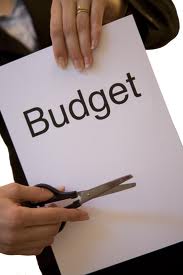
But what happens when you get an unexpected bill, the washing machine breaks down or the roof needs fixing? In a well ordered world you’d have an emergency fund set aside for just this kind of thing, but when times are tight you may not have that luxury. So how do you cope?
Cut out the Non-Essentials
We all have things in our lives that we like to spend on but which aren’t strictly vital to our lives. How often do you eat out for example? You may at this moment be thinking about formal meals out but what about all of those coffees and snacks that you buy when you’re out and about? If you’re grabbing a latte and a pastry everyday on your way to work you could be spending hundreds of pounds a year – not to mention gaining a few on your waistline! Cutting back here can save you a surprising amount and you’ll appreciate being able to treat yourself again once you’ve got yourself back on track.
Do you really need to buy a newspaper every day? Cut back to two or three days a week and you can make a significant saving. If you are addicted to your daily fix check out the subscription schemes that let you pay in advance for vouchers you can exchange for your papers. It costs up front but is cheaper than the cover price. Alternatively see if your favourite paper does a Kindle edition, it’ll save you money and you won’t have to trek round to the shop in the cold.
Change Your Shopping Habits
Another thing you can do is modify the way you shop. When you’re in the supermarket try switching to own brands instead of big names. Take care though and watch out for special offers which mean that the big brands can sometimes be cheaper. Take a calculator when you shop or use the one or your phone so that you can work out whether nine own-brand chocolate bars for £1.20 is a better deal than eight branded ones for £1 (it’s not). Take advantage of deals that get you three for two or other similar savings but don’t buy more than you can use, you’re not saving if you end up throwing things away, the freezer is your friend here.
While you’re changing your shopping habits look at your eating too. Convenience food is handy but it’s costlier than doing your own cooking. You can also look at having one day a week where you serve a simple ‘single pot’ meal like soup or a stew that’s filling, nutritious and cheap.
If you’re buying clothes, household items, books or DVDs check out your local charity shop. You can often get surprisingly good quality stuff at a bargain price. And if its books and CDs you need for entertainment perhaps it’s time to rediscover the library.
Think Before You Spend
Finally the best way to manage your budget is to keep a tight rein on your spending. Decide if something is a need or a want before you reach for your wallet. If it’s a want it can wait. Applying discipline to your shop can free up money you didn’t know you had. When you need money for an emergency living a bit more frugally for a while is a small price to pay.
Stuart Edge is a freelance writer who is constantly on the hunt for new money saving techniques. For tips on budgeting and applying for Secured Loans, follow him on Google Plus.

